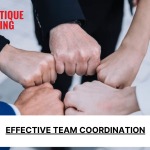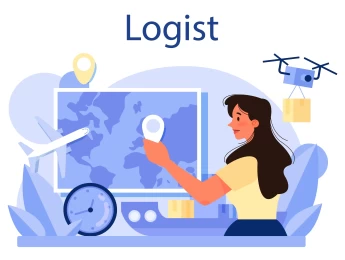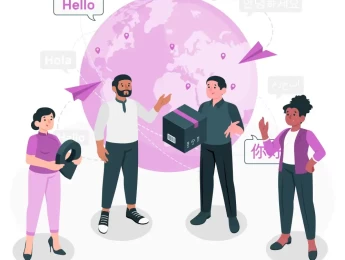Volunteers are at the heart of many nonprofit and community-based initiatives. Managing volunteers effectively and building strong, respectful relationships with them is key to maintaining motivation, retention, and impact. This course will guide participants through practical strategies to recruit, engage, support, and retain volunteers while nurturing a positive volunteer culture.
Through real-life examples, interactive tools, and clear frameworks, participants will gain confidence in leading volunteer teams, resolving common challenges, and recognizing volunteers’ contributions. The course also emphasizes inclusive practices, transparent communication, and relationship-building strategies that align volunteers with organizational goals and values.
By the end of this course, participants will be able to:
- Understand the key stages of the volunteer lifecycle.
- Identify effective recruitment and onboarding practices.
- Develop systems to monitor and evaluate volunteer performance.
- Build strong, respectful relationships with volunteers.
- Apply recognition and retention strategies.
- Resolve conflicts and improve team dynamics.
- Align volunteers’ motivation with organizational goals.
- Communicate clearly and consistently with volunteers.
This course is ideal for:
- Volunteer coordinators.
- NGO program managers.
- Community outreach officers.
- HR professionals in nonprofit sectors.
- Grassroots initiative leaders.
- Project officers working with volunteers.
- Youth program facilitators.
This course uses interactive learning through practical case studies, group discussions, role-playing, and real-world planning exercises. Participants will engage in problem-solving scenarios, receive templates and tools, and reflect on current practices to apply improvements directly.
Day 5 of each course is reserved for a Q&A session, which may occur off-site. For 10-day courses, this also applies to day 10
Section 1: Foundations of Volunteer Management
- Understanding the role of volunteers in NGO work.
- Key differences between staff and volunteers.
- Overview of the volunteer lifecycle.
- Roles and responsibilities of volunteer managers.
- Creating a positive volunteer environment.
- Values and ethics in volunteer management.
- Introduction to volunteer engagement strategies.
Section 2: Volunteer Recruitment and Onboarding
- Identifying your volunteer needs and role descriptions.
- Designing inclusive recruitment campaigns.
- Screening and interviewing volunteers.
- Setting expectations and establishing clear roles.
- Developing orientation and onboarding plans.
- Using digital tools for volunteer recruitment.
- Building excitement from the start.
Section 3: Building Volunteer Relationships
- Practicing empathy and respect in communication.
- Understanding volunteer motivations.
- Creating opportunities for feedback and collaboration.
- Regular check-ins and listening sessions.
- Creating inclusive spaces for volunteers.
- Empowering volunteers through responsibility.
- Dealing with disengagement early.
Section 4: Volunteer Training and Supervision
- Developing relevant training programs.
- Supporting skill development for volunteers.
- Coaching and mentoring approaches.
- Monitoring performance constructively.
- Setting clear goals and milestones.
- Balancing autonomy and accountability.
- Creating opportunities for peer learning.
Section 5: Recognition and Retention Strategies
- Importance of acknowledging volunteer contributions.
- Informal vs formal recognition methods.
- Volunteer appreciation events and awards.
- Creating growth paths within volunteering.
- Celebrating small wins regularly.
- Ensuring volunteers feel seen and valued.
- Listening to feedback to improve retention.
Section 6: Conflict Resolution and Team Dynamics
- Identifying early signs of tension or burnout.
- Mediation strategies for volunteer conflicts.
- Encouraging inclusive dialogue and openness.
- Role of the volunteer manager in conflict resolution.
- Managing different personalities and work styles.
- Creating team bonding opportunities.
- Encouraging mutual support among volunteers.
Section 7: Volunteer Exit and Long-term Engagement
- Planning respectful and appreciative exits.
- Conducting exit interviews and collecting feedback.
- Keeping former volunteers engaged as ambassadors.
- Using alumni networks for mentorship and advocacy.
- Tracking impact of past volunteers.
- Creating long-term volunteer databases.
- Inviting volunteers back for future campaigns.
Upon successful completion of this training course, delegates will be awarded a Holistique Training Certificate of Completion. For those who attend and complete the online training course, a Holistique Training e-Certificate will be provided.
Holistique Training Certificates are accredited by the British Accreditation Council (BAC) and The CPD Certification Service (CPD), and are certified under ISO 9001, ISO 21001, and ISO 29993 standards.
CPD credits for this course are granted by our Certificates and will be reflected on the Holistique Training Certificate of Completion. In accordance with the standards of The CPD Certification Service, one CPD credit is awarded per hour of course attendance. A maximum of 50 CPD credits can be claimed for any single course we currently offer.
- Course Code MG2 - 189
- Course Format Classroom, Online,
- Duration 10 days












